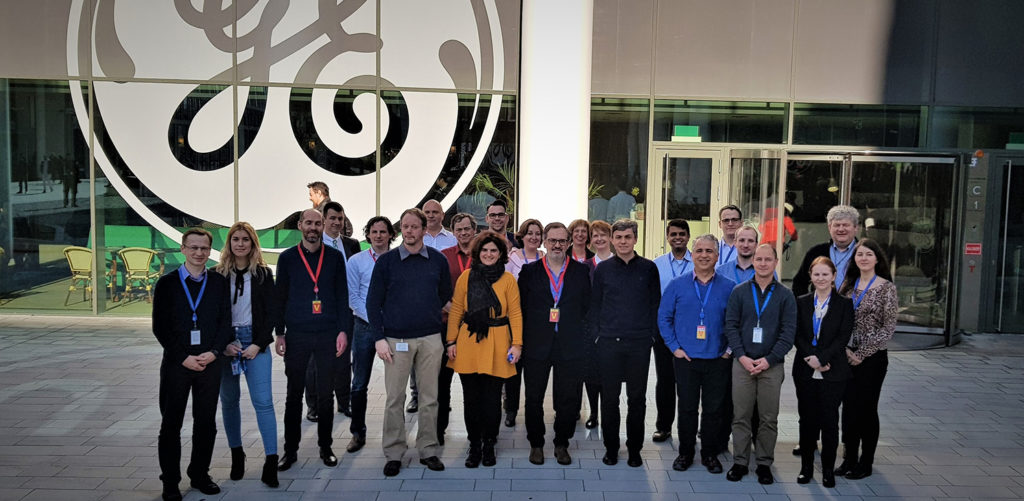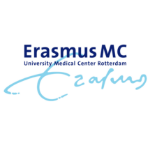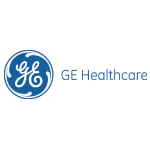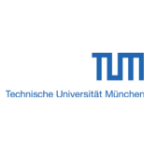Deep-Learning MR-only Radiation Therapy
This project seeks to improve radiation therapy for cancer patients by enhancing MR imaging so that CT scans can be eliminated from the process.
The solution realises the full potential of multi-parametric MRI and Deep Learning, to reduce time and stress for patients while providing images that can make radiation therapy more effective.

Origins
Approximately 1-in-3 people will develop cancer in their lifetime, and about half will receive radiation therapy, which uses radiation to destroy cancer cells while sparing surrounding healthy tissue as much as possible. Currently, this requires making tumour images with multiple MRI and CT scans, which is time-consuming, expensive and stressful for patients. Comprehensive MR-only Radiation Therapy will benefit both patients and healthcare professionals.
Team
We provide a truly collaborative environment, including clinical, academic and commercial organisations comprising expertise in medical imaging, radiotherapy physics, radiation oncology, machine learning and project management. Together, we have a unique vision of how our project can benefit our patients and bring this into routine clinical use based on experience in the U.K., the Netherlands, Germany and Hungary.
The project
This project provides a solution to improve imaging for radiation therapy, making it possible to optimise treatment for each individual patient. Radiation therapy requires 3D medical images that detect borders of the tumour and organs – to guide the use of radiation so that it primarily kills cancer cells. Current imaging is based on a complicated workflow requiring multiple scans with magnetic resonance imaging (MRI) and computer tomography (CT).
The process is expensive, inconvenient for patients and prone to positioning and registration errors, and CT scans expose patients to radiation. The Deep MR-only RT project aims to develop a smooth MRI-only imaging workflow. Comprehensive multi-parametric MRI in combination with novel RF coil concepts maximises scan efficiency and image utilisation, as required for accurate therapy planning.
Deep Learning will automate and improve tumor target delineation and identification of organs at risk, eliminate potential errors, reduce overall recurrence rates and decrease unpleasant side effects. Together, these technologies provide all the imaging information needed to plan accurate and reproducible plans for radiation therapy with a single MRI examination.
The partners have already invested more than €8 million for activities related to this project. With the additional €2.6 million funding from EIT Health and co-funding of €342 000 from partners, results are anticipated in three years’ time.
Impact
Deep MR-only RT will provide a comprehensive one-stop solution with improved clinical outcome at reduced cost.
Benefits for patients include: shorter and quieter MR scanning, which improve patient comfort, and the ability to avoid the radiation of CT scans.
Benefits for doctors are elimination of CT scans, which prevents alignment errors due to repeated patient set-ups and nonrigid body motion and may also improve long-term patient survival for young and pediatric patients.
Why this is an EIT Health project
Deep MR-only RT is aligned with the basic EIT Health goal of improved medical care. It is also in keeping with the Focus Area of “Care Pathways” because it promises improved radiation therapy treatment with better outcomes, due to improved imaging.
External partner
- Szeged University
- King’s College London
Partners

CLC/InnoStars: Belgium-Netherlands
Partner classification: Education, Research, Hospital / University Hospital
Erasmus University Medical Center Rotterdam (Erasmus MC) is the largest university medical center in The Netherlands with around 16,500 employees, and a top referral hospital for a region of about five million inhabitants. A unique infrastructure bringing multidisciplinary research and healthcare together at one location allows Erasmus MC to excel in fundamental research, fast translation of findings into the clinic including first-in-man testing and clinical implementation, and epidemiological studies.
Technical university medical center: Technology is at the core of the new strategy. Erasmus MC focuses on the use of technology and data science to foster innovation in a variety of fields – from medical instruments and devices, minimally invasive surgery, imaging and image analysis, information technology and smart data technology to artificial intelligence, machine learning and biomedical technology.
Erasmus University Medical Centre Rotterdam
Erasmus University Medical Centre Rotterdam, Dr. Molewaterplein 40, 3015 GD Rotterdam, The Netherlands
Key Activities in Research and Developement
Life Sciences, Social sciences / health economics, Clinical research
Key Activities in Social Innovation
Healthcare provision
Key Activities in Business Creation
Technology Transfer
Key Activities in Education
Medical faculties, Healthcare professional education/training






CLC/InnoStars: InnoStars
Partner classification: Business, Education, Research
Partner type: Core Partner
GE Healthcare, as a leading provider of medical imaging, monitoring, biomanufacturing, and cell and gene therapy technologies, enables precision health in diagnostics, therapeutics and monitoring through intelligent devices, data analytics, applications and services. With over 100 years of experience in the healthcare industry and more than 50,000 employees globally, the company helps improve outcomes more efficiently for patients, healthcare providers, researchers and life sciences companies around the world.
GE Healthcare
Key Activities in Research and Developement
Other research, Biomedical engineering, Life Sciences, Clinical research
Key Activities in Corporate Innovation
Pharma, Med Tech, ICT, Diagnostics, Imaging
Key Activities in Business Creation
Incubation, Finance & Investment, Business coaching, Testing & Validation
Key Activities in Education
Business Schools, Entrepreneurship training, Healthcare professional education/training






CLC/InnoStars: Ireland-UK
Partner classification: Education, Research
Partner type: Associate Partner
Newcastle University has always focused on academic excellence and the impact of their academic work. They seek to address some of the key global societal issues through research in 3 areas: ageing; social renewal; sustainability. Newcastle University collaborates with a range of partners and strategic initiatives. These partnerships help to extend the University’s influence and reinforce their ties with the city, the region and beyond.
Newcastle University
Newcastle University, Newcastle Biomedical Research Building, Newcastle upon Tyne NE4 5PL, UK
Key Activities in Corporate Innovation
Med Tech, ICT
Key Activities in Business Creation
Finance & Investment, Business coaching
Key Activities in Education
Business Schools, Entrepreneurship training, Technical faculties, Medical faculties






CLC/InnoStars: UK-Ireland
Partner classification: Hospital / University Hospital
Partner type: Associate Partner
Newcastle upon Tyne Hospitals NHS Foundation Trust has been providing patient-centred healthcare to communities in the North East of England and beyond for over 250 years. It is one of the largest NHS trusts in the UK, offering a wider range of specialist services than any other. From newborn babies to the elderly and infirm, their aim is to deliver modern healthcare with a personal touch. Newcastle upon Tyne Hospitals NHS Foundation Trust’s strategic goals: - putting patients first and providing care of the highest standard focusing on safety and quality - working in partnership to deliver fully integrated care and promoting healthy lifestyles to the people of Newcastle - being a nationally and internationally respected leader in Research and Development underpinning our pioneering services - enhancing our reputation as one of the country’s top,first class teaching hospitals, promoting a culture of excellence in all that we do - maintaining sound finanzial management ot ensure the ongoing development and success of their organisation
Newcastle upon Tyne Hospitals NHS Foundation Trust
Newcastle upon Tyne Hospitals NHS Foundation Trust, Freeman Rd, High Heaton, Newcastle upon Tyne NE7 7DN, UK
Key Activities in Social Innovation
Healthcare provision
Key Activities in Education
Medical faculties






CLC/InnoStars: Germany
Partner classification: Education, Research, Tech Transfer, Clusters, Other NGOs, Hospital / University Hospital
Partner type: Core Partner
TUM is one of Europe's top Universities. It is committed to excellence in research and teaching, interdisciplinary education, and the active promotion of promising young scientists.
Technische Universität München (TUM)
Technische Universität München (TUM), Arcisstraße 21, 80333 München, Germany
Key Activities in Research and Developement
Biomedical engineering, Life Sciences, Social sciences / health economics, Clinical research
Key Activities in Business Creation
Incubation, Technology Transfer
Key Activities in Education
Entrepreneurship training, Technical faculties, Medical faculties



| Principal Scientist | GE Healthcare Munich, Germany; King’s College London, UK
Contact